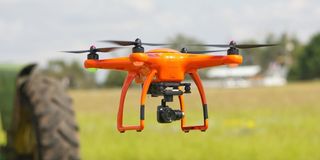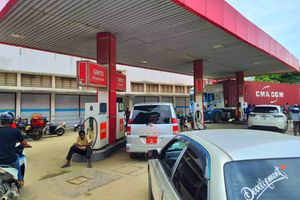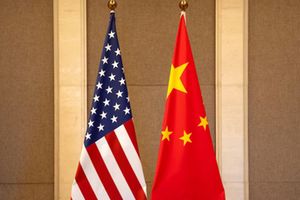Global corporations join drone project to save rural communities in Tanzania

What you need to know:
An initiative has been launched to deploy drones to supply live-saving cargo in Lake Victoria Zone’s rural communities.
Dar es Salaam. Four organisations are helping Tanzania to carry out a project of deploying drones to distribute life-saving cargo such as blood packs, critical medication, anti-venoms or spare parts for hospital equipment in rural areas in the Lake Zone.
It is difficult to reach such areas. Thanks to the World Bank, the World Food Programme, Unicef and the World Economic Forum Centre for the Fourth Industrial Revolution that they will be working with the government to tackle the challenge.
According to the organisations’ joint statement on Monday, December 03, 2018, being home to 35 million people, East Africa’s Lake Victoria Basin is the most densely populated rural area in the world.
The high cost of transportation also means that local producers have difficulty in getting their products and produce to markets.
“Island communities in and around Mwanza are often only accessible by boats, which can be slow and expensive. A drone network will improve access to medicines, blood packs and spare parts for hospital equipment,” said Mwanza Regional Commissioner John Mongella.
Known as the Lake Victoria Challenge, the project aims at providing long-term opportunities for growth in East Africa.
“The partnership can support reimagining Lake Victoria’s mobility, public health systems and daily life; opening up innovative possibilities for real-world impact. This goes further than just drones, and will benefit industries like agriculture, e-commerce, entertainment, construction, and telecommunications. We’re excited to see what the future will hold for the Lake region and we commend the regional commissioner of Mwanza for taking a lead on making it happen,” said Ms Bella Bird, the World Bank Group country director for Tanzania, Burundi, Malawi and Somalia.
“It is exciting and timely to see Unicef and the World Bank collaborating around new and frontier technology. The Lake Victoria Challenge is a concrete example of how technological, regulatory, and social innovations can help solve problems for and with the world’s most vulnerable populations. This type of work is also central to the secretary general’s strategy on new technology which explicitly calls for a United Nations that supports new cooperation frameworks and enhances our ability to provide government capacity development,” said Mr Chris Fabian, Unicef ventures lead, New York.
“At the World Food Programme, we believe that drones have a viable and potentially critical role to play in supporting our work. The Lake Victoria Challenge offers an opportunity to better understand the potential of this emerging technology in terms of our mission and to demonstrate how government, regulators, international aid, innovators and industries can unite for the benefit of East Africa — and beyond,” said Mr Michael Dunford, World Food Programme Tanzania country representative.
“The Lake Victoria Challenge is unlike any other drone competition, in that it is initiated and supported by the government of Tanzania. As a technology, drones have the power to transform African mobility — but robust regulatory frameworks are required to make the dream into a reality. That’s why the World Economic Forum has partnered with the World Bank to support the development of real use cases in Mwanza,” said Mr Harrison Wolf, project lead for drones and Tomorrow's Airspace, World Economic Forum.




